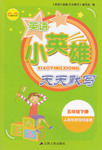题目内容
When traveling, it's important to learn about the customs and etiquette (礼节)of the global village, What we consider polite behavior at home isn't always accepted outside our borders.Don't be regarded rude or disrespectful on your travels.
Gift giving should be a happy, positive experience.When selecting a present for someone in the Netherlands, don't purchase fancy kitchen knives or scissors.Giving sharp, pointy objects as gifts is considered unlucky.Be careful when presenting flowers to a friend or business partner in Russia.Yellow blooms suggest cheat or a relationship break-up. Traditionally, red carnations are placed on the tombs of the dead.Writing cards or notes while visiting South Korea, be mindful of your pen's ink color.Writing a person's name in red ink traditionally suggests that the person has passed away-an important point to remember when giving a birthday card.
Being early or on time is viewed as being rude, too eager or even greedy in Venezuela.If you are invited over to someone's home for a meal, it's recommended that you arrive 10 to 15 minutes later than the requested time.When having a meal in Egypt, don't use the saltshaker(调味瓶). It's insulting to your host to spread salt on your food, which means that you find the meal terrible.Japan is a very polite nation, and their fondness for etiquette extends to the mealtime use of chopsticks.According to Japanese custom, it's considered ill-mannered to point, play with, or stab(戳) food with chopsticks.If you’re in the middle of eating, use the opposite end of your chopsticks to secure food from a shared plate.Using the end that touches your mouth is extremely offensive (冒犯的), not to mention unhygienic(不卫生的).
1.When sending a gift to your friend in Netherlands, you should avoid .
A.sharp knives B.red carnations
C.yellow flowers D.long chopsticks
2.In South Korea, writing a person's name in red is not accepted because .
A.red often stands for violence
B.it shows that you're not friendly
C.it means that the person is dead
D.red is not a favorite color there
3.What does the underlined word "insulting" in Paragraph 3 refer to?
A.Admirable. B.Challenging.
C.Rude. D.Respectful.
4.Where does this passage probably come from?
A.a news report. B.a tourist guide.
C.a museum guide. D.a science book.
1.A
2.C
3.C
4.B
【解析】
试题分析:本文讲的是当旅行的时候,了解当地的风俗和礼节是重要的。在家里认为有礼貌的举止行为,到了其他地方不总是被接受。在旅行的过程中不要被认为粗鲁或不尊重。
1.1】A细节理解题。根据第二段第二句When selecting a present for someone in the Netherlands, don't purchase fancy kitchen knives or scissors.在Netherlands,当你给一个人选择礼物时不要购置厨房的刀子和剪刀。可知选A。
2.2】C细节理解题。根据第二段最后一句Writing a person's name in red ink traditionally suggests that the person has passed away用红墨水写一个人的名字传统上表明这个人已经去世。故选C。
3.3】C词义猜测题。根据第三段中的It's insulting to your host to spread salt on your food, which means that you find the meal terrible.后面的定语从句表达的是“这意味着你觉得主人做的饭不好吃”,所以前面应该是说“在你的食物上放盐是对你主人的不尊重”,因此可知选C粗鲁的。
4.4】B推理判断题。根据第一段第一句When traveling, it's important to learn about the customs and etiquette (礼节)of the global village,句意:当旅行的时候,了解当地的风俗和礼节是重要的。因此可推断出选B。
考点:考查人生感悟类阅读。

 英语小英雄天天默写系列答案
英语小英雄天天默写系列答案 暑假作业安徽少年儿童出版社系列答案
暑假作业安徽少年儿童出版社系列答案